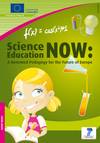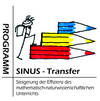Project background
FP7 Capacities Work Programme: Science in Society
The FP7 Science in Society (SiS) Work Programme introduced new forms of activities like developing larger-scale actions involving a wide range of different actors that work together on key SIS issues.
Following the main findings and recommendations of the Rocard report (see below) the European Commission decided to fund projects, which "will support actions to promote the more widespread use of problem and inquiry-based science teaching techniques in primary and/or secondary schools as well as actions to bridge the gap between the science education research community, science teachers and local actors in order to facilitate the uptake of inquiry-based science teaching." (WORK PROGRAMME 2009 Science in Society, SiS-2009-2.2.3.1)
Based on projects Pollen and SINUS-Transfer
As recommended by the EU the FIBONACCI project is based on experiences of already existing and well evaluated educational programmes. Fibonacci is mainly based on the projects Pollen and SINUS-Transfer, but also includes other European projects.
Some information about involved projects ...
The Rocard Report
In 2006 the European Commission had tasked a small group of experts, chaired by the former French Prime minister Michel Rocard, to examine a crosssection of on-going initiatives and to draw from them elements of know-how and good practice that could bring about a radical change in young people’s interest in science studies - and to identify the necessary pre-conditions.

In 2007 the Rocard Report "Science Education now: A Renewed Pedagogy for the Future of Europe" was published.
The report summarizes: "The science education community mostly agrees that pedagogical practices based on inquiry-based methods are more effective, the reality of classroom practice is that in the majority of European countries, these methods are simply not being implemented."
"In Europe, these crucial components of renewal of science teaching practices are being promoted by two innovative initiatives, “Pollen” and “Sinus-Transfer”, that are proving themselves capable of increasing children’s interest and attainments in science."


